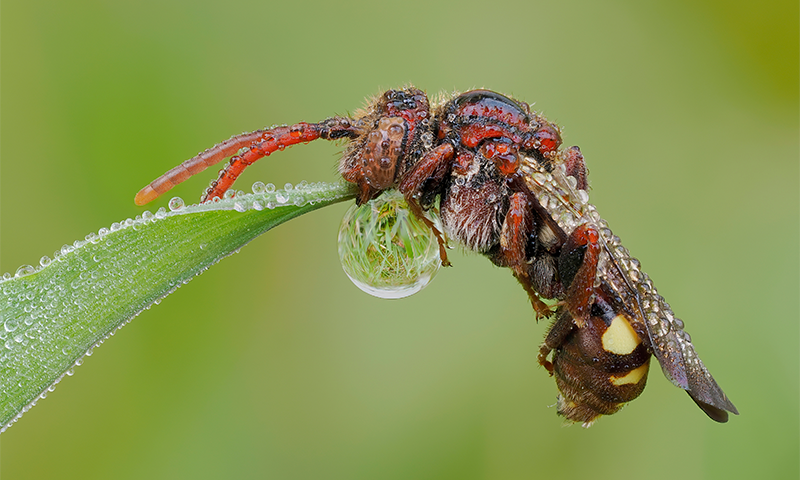Now Reading: Meet the Master Tricksters of the Bee World
-
01
Meet the Master Tricksters of the Bee World
Meet the Master Tricksters of the Bee World

Speedy Summary
- The fork-jawed nomad bee (Nomada ruficornis), found in England’s Hertfordshire, is a brood parasite, known for laying eggs in the nests of other bees, leaving host bees to unknowingly raise its young.
- Cuckoo bees avoid building nests or preparing food stores and rather lurk near host nests to deposit eggs when the hosts are away. Their offspring eventually consume host bee larvae and benefit from stored pollen and nectar.
- Male cuckoo bees do not partake in parasitic nesting, but they emit pheromones during mating that may help females disguise themselves for egg-laying.
- There are over 850 species of cuckoo bees worldwide with varying strategies, including targeting solitary or social host species like bumblebee colonies.
- Cuckoo bee populations depend on the health of their hosts; declines in broader bee populations threaten parasitic species as well.
Indian Opinion Analysis
The brood parasitism behavior discussed signifies nature’s remarkable evolutionary diversity, with adaptations like deceptive reproduction practices ensuring survival for species such as cuckoo bees. For India-in which ecosystems thrive on pollinators-this insight reinforces the interconnectedness within biodiversity and highlights vulnerabilities stemming from declining bee populations globally. Bee conservation measures could hold ripple effects for agriculture-dependent economies like India’s by preserving crucial pollination services essential for sustaining crops and wild vegetation alike.




























